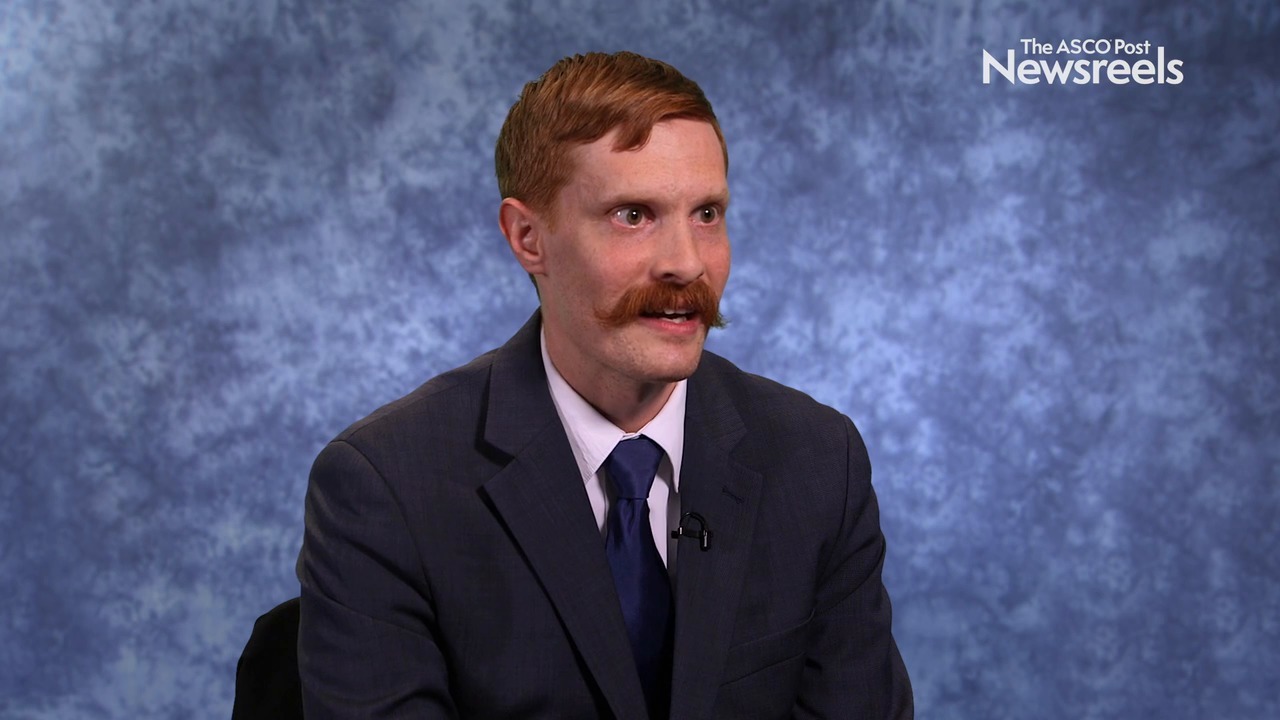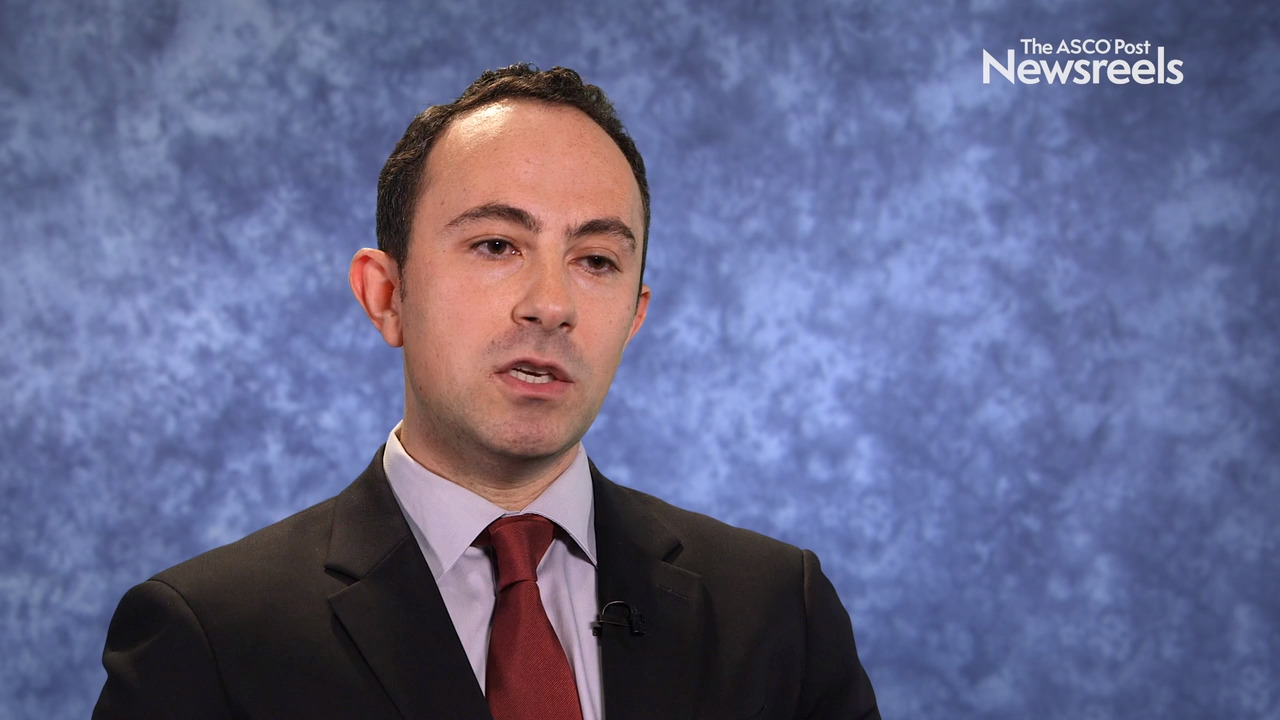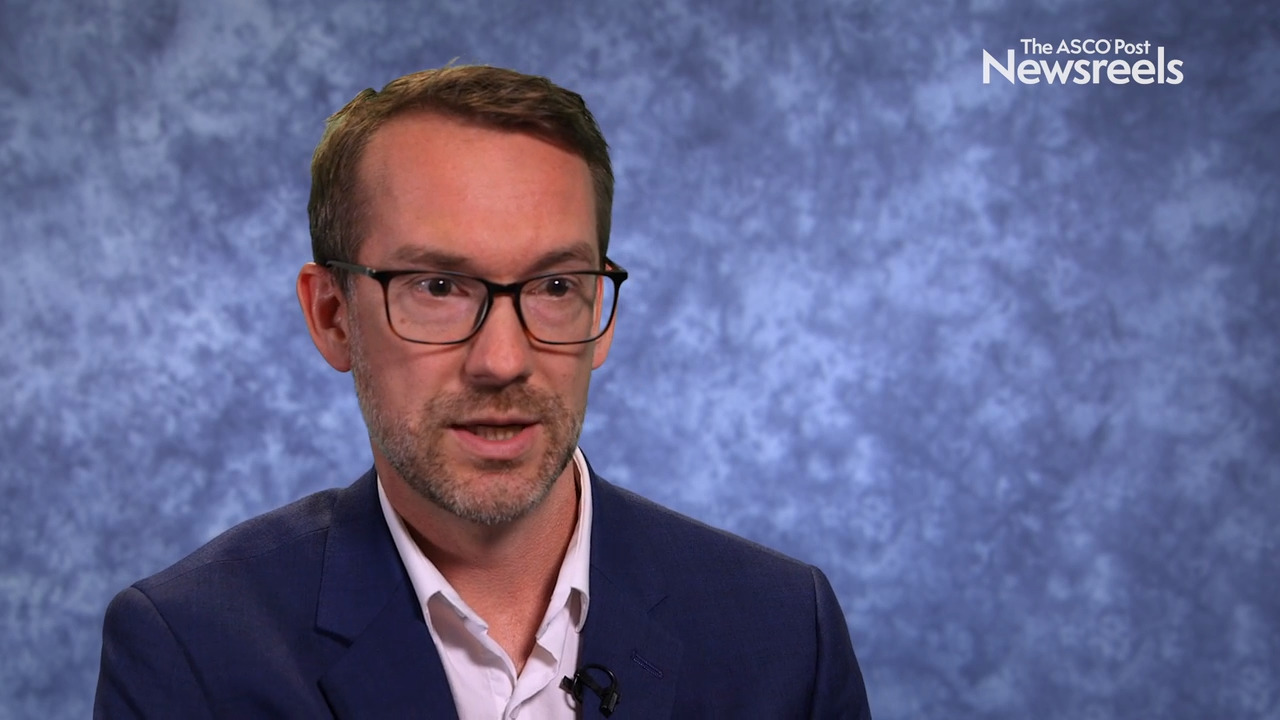Daniel E. Spratt, MD, on the Impact of Antiandrogen Treatment in Prostate Cancer: NRG Oncology/RTOG 9601 Trial
2019 ASTRO Annual Meeting
Daniel E. Spratt, MD, of the University of Michigan, discusses phase III study findings showing that 2 years of antiandrogen therapy increased cardiac and neurologic toxicities, as well as mortality from causes other than prostate cancer, in men with low levels of prostate-specific antigen after prostatectomy who received adjuvant early salvage radiotherapy (Abstract LBA1).
Michael J. LaRiviere, MD, of the University of Pennsylvania, discusses the safety and efficacy of an alternate radiation-based approach to using cytotoxic chemotherapy alone in preparation for CAR T-cell treatment (Abstract 135).
David Routman, MD, of the Mayo Clinic, discusses his study findings showing that detectable human papillomavirus circulating tumor DNA in the postoperative setting may be linked to disease progression, which may help improve patient selection for treatment intensity (Abstract LBA5).
Ryan Phillips, MD, PhD, of Johns Hopkins Medical Institutions, discusses phase II findings suggesting that treatment with stereotactic ablative radiation significantly decreased the risk of disease progression at 6 months and increased progression-free survival (Abstract LBA3).
Youssef Zeidan, MD, PhD, of the American University of Beirut Medical Center, discusses study findings showing that, in patients with one to three positive lymph nodes, postmastectomy radiation treatment decreased the risk of locoregional recurrence, particularly in estrogen receptor–positive disease (Abstract 83).
Robert Olson, MD, of the BC Cancer Centre for the North, discusses a secondary analysis of the SABR-COMET trial, which showed there was a small magnitude decline in quality of life in both arms of the study but no associated detriment with stereotactic ablative radiotherapy (Abstract 148).





